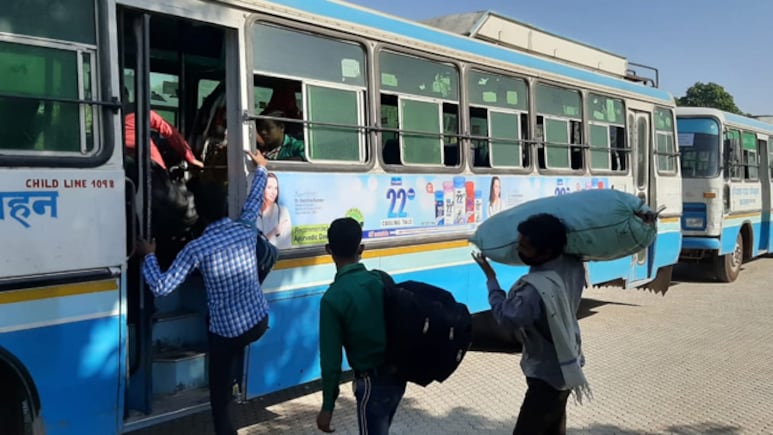
Travelling over 2,000 km, from Tamil Nadu to exercise their franchise during the two-phase elections in early November remains a distant dream for many migrant workers from Bihar, as their insecure jobs make it nearly impossible to take time off.
Families that left their home state and settled across Tamil Nadu for low-paying jobs also do not see travel as an option this poll season.
"Most of us in the construction sector stay at the site, cook our own food, and eat there. We rarely go out. We work on holidays and sometimes past sunset to earn a little extra for our families," said Ajay Kumar, a construction worker.
"In case I decide to go to Patna, I would need six days for the round trip and a few more to spend with my family. So, I may not go home," he added.
Many families from Bihar are now spread across Tamil Nadu—some as far as Kanyakumari, bordering Kerala—and work in sectors such as rubber glove manufacturing, coir production, domestic work, and other industries.
"They've even admitted their children to local schools, and a few have registered themselves in the electoral rolls here. So, they are unlikely to vote in Bihar," said Siluvai Vasthian of HEAL Movement, an NGO working to empower marginalised communities and build participatory structures for unorganised sectors.
Due to interventions by such organisations and the local administration, children of Bihari migrant families employed across various sectors have been weaned away from labour and enrolled in schools.
Migrant workers from Bihar constitute the second-largest group of inter-state migrant (ISM) labourers in Tamil Nadu after those from Odisha, with nearly 2.51 lakh officially registered in the state. They make up a significant portion of Tamil Nadu's total registered ISM population of over 12.17 lakh, which also includes workers from Odisha, Jharkhand, West Bengal, Uttar Pradesh, Assam, and the Northeast.
According to an official estimate, Tamil Nadu has around 35 lakh inter-state migrant workers employed across 38 districts in sectors such as construction, mining, quarries, hospitality, manufacturing, textiles, retail, and other commercial establishments.
A recent State Planning Commission report titled 'Life and Times of Migrant Workers in the Chennai Region–2024–25' noted that most workers in the Chennai region hail from eastern and northeastern states, particularly Bihar, Odisha, and Assam.
"Going to Bihar would mean losing several days of wages, which I can't afford," said Alok, who works at a hotel in Chennai. He suggested that the government consider creating a mechanism to help migrant workers vote from their place of work.
(Except for the headline, this story has not been edited by NDTV staff and is published from a syndicated feed.)
Track Latest News Live on NDTV.com and get news updates from India and around the world

